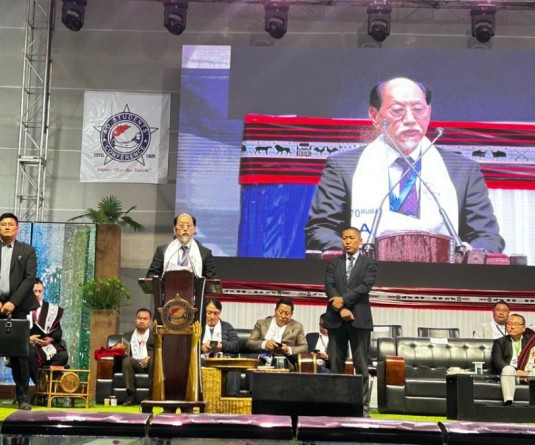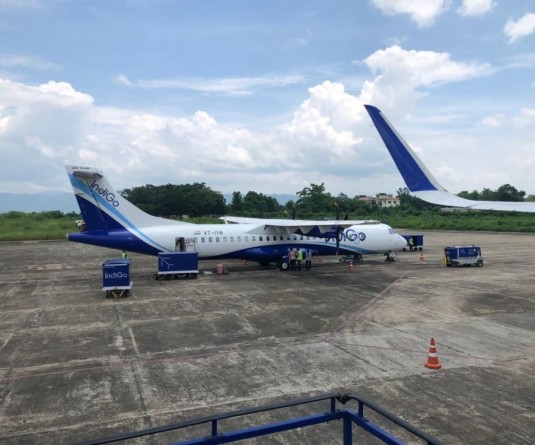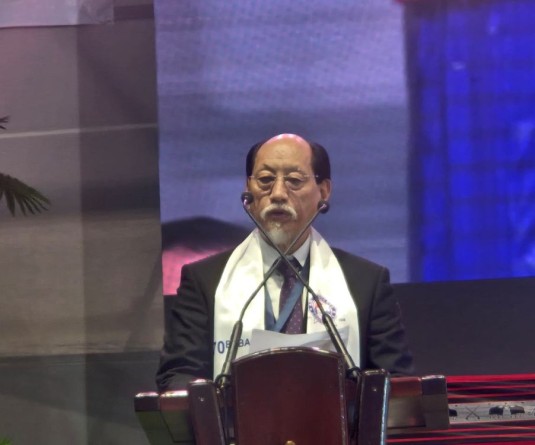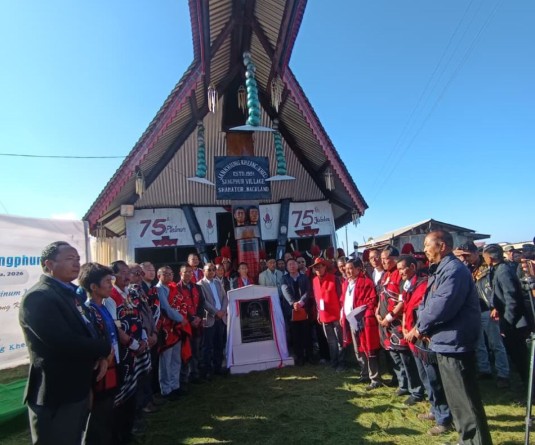Vipralhou Kesiezie, Chairman, Governing Body, Baptist College, Kohima.
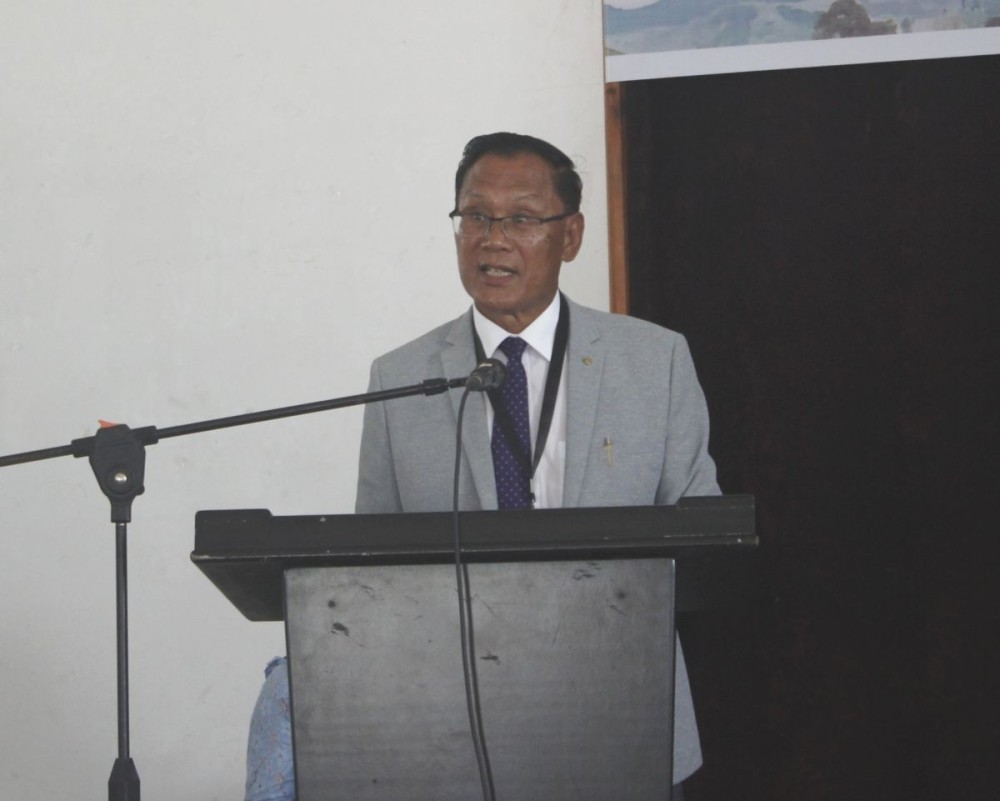
Morung Express News
Kohima | June 11
The inaugural session of the two-day national seminar on “Border Dynamics in Northeast India: Challenges, Opportunities and Policy Imperatives” began at Baptist College, Kohima on June 11.
In his inaugural address, Vipralhou Kesiezie, Chairman, Governing Body, Baptist College, Kohima highlighted that Border Dynamics is a common concern for the whole North East region of the Country while pointing out that, “The whole NE region is totally vulnerable to a number of threats from within as well as from outside forces.”
Expressing concern that the rapid fundamental changes undergoing in this region is definitely a big worry, he said that, “it would be catastrophic if we fail to defend ourselves.” Like any other civilizations in the World, he observed that, “the NE region too has a history of our past which has undergone drastic changes as this region has become one of the most hotspot of migrant seekers who came in sporadic waves from different ethnic groups mostly the mongoloid groups with distinct languages originated from West China.”
He further deliberated on the colonization of the NE India by different ethnicity of people speaking distinct different languages and cultures of its own, and also touched upon the history of the Ahom kingdom in Assam who ruled over it for a period of 600 uninterrupted years, one of the longest in the history of the world.
Citing the civil war in Manipur and serious allegation of the involvement of the militant groups from Myanmar, the political instability and the big unrest of the people both in Myanmar and Bangladesh, and the unchecked illegal influx from across the borders, he said that, “the result is - the entire NE region has been swarmed by the illegal immigrants which has posed as one of the most serious threats to the security of the region.”
The entire NE India, he pointed out, “still remain as one the most vulnerable region of the country and a political hotspot with unpredictable future.”
However, he also maintained that, “there is nothing permanent in this world, be it political and its border, nations, Kings or kingdoms etc as it is an ever evolving process and it will keep on changing.”
Given our present situation and future especially for our survival, progress and development as an integrated people, he also put forward a few suggestions. These include: “Settle all internal disputes through give and take policy, settle our disputes through peaceful solution; Form a united Front through a common platform and take up the common issues and problems of the entire NE region in a collaborative manner with the Gol. Avoid sectarian approach on the line political parties. Ask the Gol to give us what is rightfully due to us if the Central Govt. accept us as an integral part of the country Ensure security of the region and check the illegal immigrants and deportation thereof; Construct and build better connectivity such as roads, railways, air etc for easy with another; Cultural exchange programs-arts & music, games & sports, literary exchange program and etc.; Promotion of tourism and recreational activities in collaborative manner; Adopting a common regional language and its promotional activities; and Setting up of Trade Centre in every NE States.”
Highlights of the inaugural session included prayer by Rev (Dr) Rachülie Vihienuo, Executive Director, ABCC, message from the collaborating institution by Prof (Dr) Pun Khan Pay, Department of History a d Archaeology, Nagaland University, Kohima, song by Arenchenla Walling, Member of Nagaland Folkloric, TaFMA and vote of thanks by Dr Kekuchol Pusa, Principal, Baptist College, Sechü while Dr Sentinaro, Seminar Convener, Baptist College Kohima chaired the programme.
Mention may be made here that the two-day national seminar is being organised by Research & Development Cell (RDC) Baptist College, Kohima in collaboration with Department of History & Archeology, Nagaland University, Kohima Campus.


